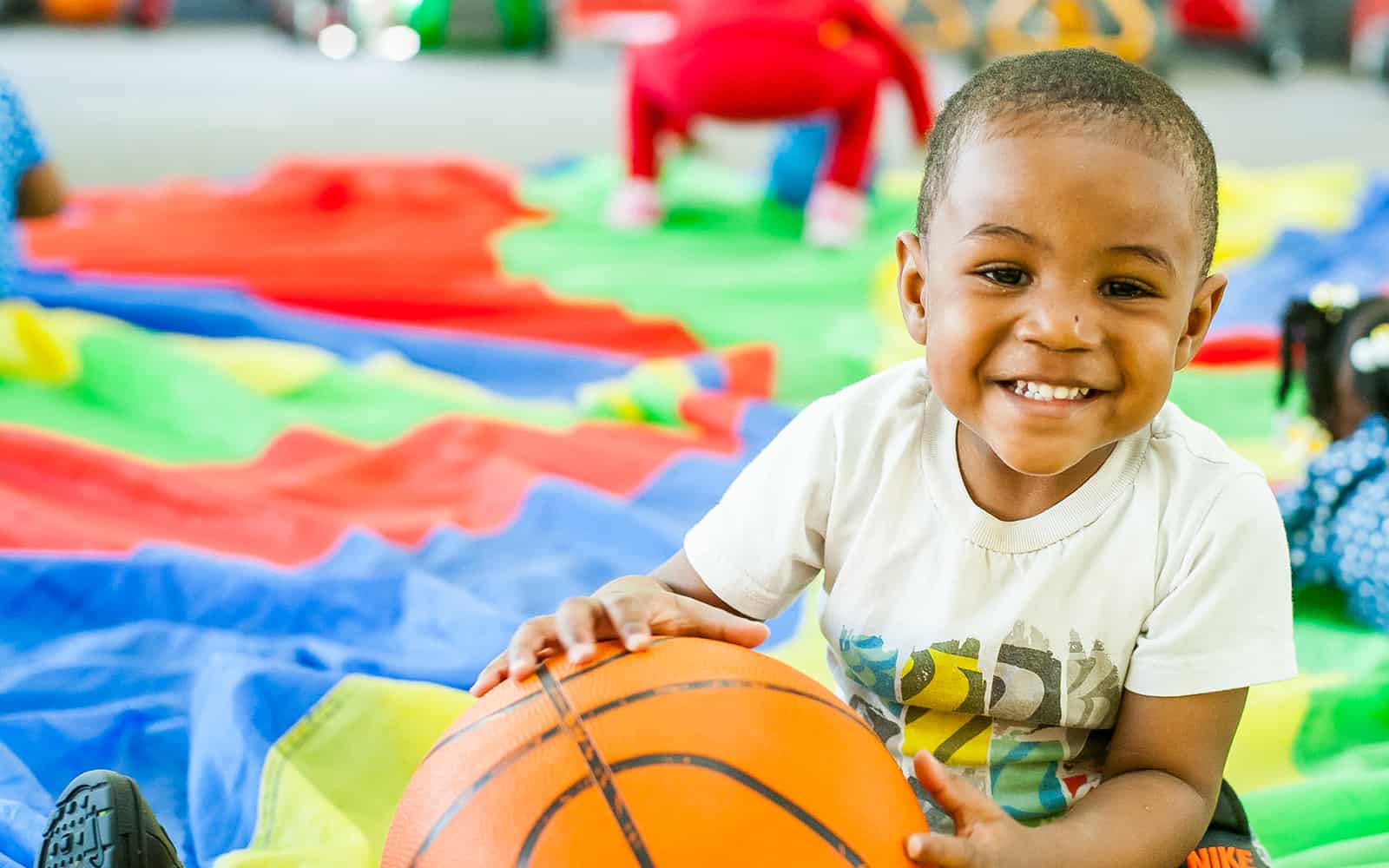From a child’s first soccer team to recreational softball leagues to rooting for your favorite team, sports hold an iconic place in our lives. And they play an equally important role in helping children’s development in the early years.
It’s easy to see how sports can help with children’s gross and fine motor skills development. Less obvious, but just as critical, is the role that sports and play-based learning activities have in social-emotional development and speech and language development.
Be a Good Sport
As babies grow into toddlers, they gradually start to regulate their emotions. Playing sports with others gives them the opportunity to experience feelings such as joy, frustration, pride and patience in a non-threatening situation. To help them develop social-emotional skills, try:
- Naming emotions as they play. “Suzy, great job catching that ball – you must be so proud of yourself!”
- Help your child regulate his emotions when he is upset by talking about their feelings. “Tyler, I can see that you’re upset about missing the goal – let’s talk about why you’re upset.”
As children continue to grow and begin to play on teams, they develop teamwork skills that will be invaluable on and off the field. Team sports also provide a great opportunity to encourage empathy while learning new skills and celebrating successes. Try these tips to make sure your child will win the sportsmanship award:
- Model the behavior you want to see – cheer as loudly for all the children on the team as you do for your child. Encourage your child to be a “cheerleader” for their team.
- Reinforce the importance of taking turns at shooting the basket or practicing on the balance beam.
Hat Tricks, Fartleks and Setter
Every sport comes with a vocabulary of its own. Which means more and more opportunities to expose your children to new and varied language! From silly to repetitious to obscure, how do you make the most of this treasure trove?
- As your child plays, name actions and items that are involved in their sport. Kick, run, pass, racquet, ball, tee, somersault…..the list is endless.
- Have your child put the game into their own words – ask them to tell you how the game works.
We can’t guarantee that your child will become the next Serena Williams, David Beckham, Simone Biles or Derek Jeter, but we do know that time spent playing sports in the early years will pay off in many other ways!


